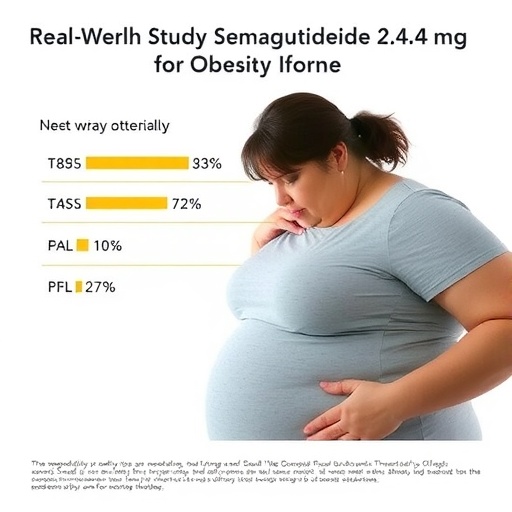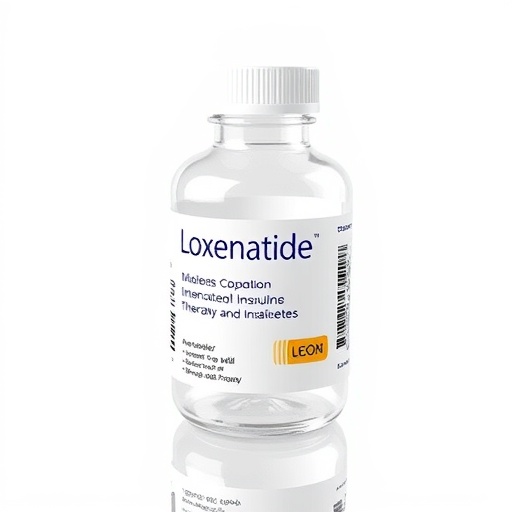
In recent years, the obesity epidemic has been recognized as one of the most pressing health challenges, affecting millions of individuals around the globe. The quest for effective treatments has driven an array of research studies aimed at understanding the efficacy and safety profiles of various anti-obesity medications. A prominent player in this field is semaglutide, a glucagon-like peptide-1 (GLP-1) receptor agonist originally approved for managing type 2 diabetes but now emerging as a potent option for weight management in obese and overweight patients. Recent findings from a robust study delve into the clinical outcomes of semaglutide at a dosage of 2.4 mg for managing obesity, offering a comprehensive look at its real-world effectiveness and reinforcing its potential role as a game-changing intervention.
The research, conducted as a retrospective comparative cohort study, assesses the effects of semaglutide on weight loss and associated health markers among patients with obesity or overweight. By evaluating a diverse cohort of individuals who have utilized this medication, the study aims to draw meaningful conclusions about its impact outside the confines of clinical trials, which often include strictly selected patient populations. This aspect of the study underscores the importance of understanding how therapies perform in everyday practices, where variations in patient backgrounds and adherence levels are commonplace.
The methodology adopted in this study meticulously sought to establish a clear picture of semaglutide’s clinical implications. The authors gathered data from a range of healthcare facilities, ensuring a robust representation of the population affected by obesity. Participants, categorized based on their treatment with semaglutide versus those who did not receive the medication, were tracked over a significant duration. Such a comparative analysis provides insights into not just the weight loss experienced by patients, but also examines various secondary health outcomes, such as improvements in blood pressure, lipid profiles, and glycemic control.
One of the most striking aspects of the research findings is the significant reduction in body mass index (BMI) observed among participants treated with semaglutide. Over the study period, patients showcased a noteworthy decrease in weight, with many achieving substantial milestones in their weight management journeys. This benchmark is crucial, as even modest weight loss can lead to improvements in obesity-related comorbid conditions, ultimately enhancing the patients’ overall quality of life.
Moreover, the study highlights the positive security profile of semaglutide at the 2.4 mg dosage. While typical concerns regarding side effects associated with anti-obesity medications are always present, the research points to a tolerable safety experience among the participants. This aspect is vital in fostering trust in potential users of the medication who might hesitate to pursue weight-loss strategies due to fears surrounding side effects. Understanding the risk-benefit ratio of semaglutide is critical for healthcare providers when discussing treatment options with individuals struggling with obesity.
Clinical outcomes extend beyond weight loss alone. The study unveils promising data on metabolic health improvements, elucidating how participants experienced favorable shifts in key metabolic parameters. Markers such as HbA1c levels and insulin sensitivity showed marked improvement among those on semaglutide. This aspect significantly positions the drug as not only a mode for weight management but also as a comprehensive therapeutic strategy geared towards addressing obesity-related metabolic dysfunctions.
A compelling element of the analysis is the identification of factors that may predict the success of semaglutide treatment. Through careful data analysis, researchers pinpoint variables such as baseline BMI, age, and gender that appear to correlate with better weight loss outcomes. Such information is invaluable as it can inform personalized treatment approaches, allowing healthcare professionals to better tailor interventions to meet individual needs and maximize the effectiveness of weight management strategies.
Furthermore, the study provides a layer of reassurance regarding long-term engagement with semaglutide. Many patients face challenges in maintaining weight loss following initial success, a phenomenon commonly referred to as weight regain. However, preliminary findings from this research suggest that continuous treatment with semaglutide could potentially mitigate this effect, allowing individuals to sustain their weight loss achievements over time. This aspect may encourage healthcare providers to consider prolonged therapeutic management for their patients struggling with obesity.
The implications of this research are significant, not just for healthcare providers but also for the broader public health framework. With obesity rates continuing to climb, the emergence of effective pharmacologic options like semaglutide holds the promise of alleviating the considerable burdens associated with obesity on healthcare systems. This study aligns with global health objectives aimed at combating obesity, thereby contributing to the dialogue surrounding actionable strategies to address this crisis.
The broader societal context is equally essential in discussing the potential for semaglutide’s adoption. As conversations around obesity shift—becoming less stigmatized and increasingly viewed through the lens of health equity—the availability of effective treatment options could facilitate more widespread acceptance and proactive management of weight-related issues. Healthcare professionals equipped with current research can better advocate for their patients and educate the public on the realities of obesity treatment in a compassionate and informed manner.
In conclusion, the research exploring semaglutide’s role as a treatment for obesity provides a compelling narrative underscored by robust clinical data. The findings present a multifaceted picture that not only advocates for its effectiveness in aiding weight loss but also highlights broader health improvements and favorable safety profiles. As the health community contemplates measures to address the obesity epidemic, results from this study could play a pivotal role in shaping clinical practices and influencing health policy decisions aimed at the prevention and management of obesity on a global scale. Future inquiries will undoubtedly continue to explore semaglutide’s potential, ensuring ongoing advancements within the landscape of obesity treatment.
As we move forward, it remains critical to maintain a focus on patient-centric approaches that prioritize both short-term and long-term health outcomes. With research underpinning the usefulness of semaglutide, the mission to combat obesity is afforded renewed vigor and hope. It is this message that healthcare providers must carry to the public, emphasizing the importance of comprehensive treatment strategies while fostering an inclusive environment around discussions on weight, health, and well-being.
Subject of Research: Semaglutide 2.4 mg Clinical Outcomes in Patients with Obesity or Overweight.
Article Title: Semaglutide 2.4 mg Clinical Outcomes in Patients with Obesity or Overweight: A Real-World Retrospective Comparative Cohort Study.
Article References:
Ruseva, A., Michalak, W., Fabricatore, A. et al. Semaglutide 2.4 mg Clinical Outcomes in Patients with Obesity or Overweight: A Real-World Retrospective Comparative Cohort Study.
Adv Ther (2025). https://doi.org/10.1007/s12325-025-03320-6
Image Credits: AI Generated
DOI: 10.1007/s12325-025-03320-6
Keywords: Semaglutide, obesity, weight management, glucagon-like peptide-1, metabolic health, comorbidities.
Tags: clinical outcomes of anti-obesity medicationsefficacy and safety of semaglutideGLP-1 receptor agonist for weight losshealth markers associated with obesity treatmentimplications of obesity treatments in everyday practicemanaging obesity with pharmacotherapyobesity epidemic and treatment optionsreal-world effectiveness of semaglutideretrospective cohort study on weight losssemaglutide dosage for weight managementsemaglutide for obesity managementweight management in overweight patients




